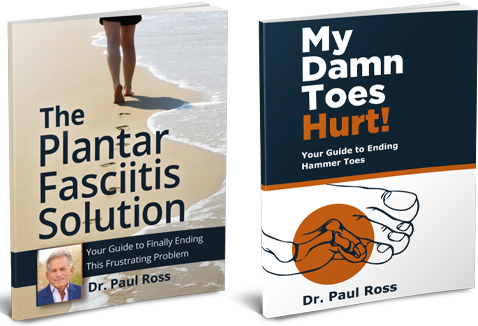 Both flat feet and high-arched feet are abnormal structures of the foot that need special attention. If you have flat feet, you may be wondering what you can do to prevent or alleviate foot conditions associated with this foot type. Flat feet do put you at risk for certain foot problems, including Achilles tendonitis and plantar fasciitis, as do high arches. Thankfully, we offer treatment options to help avoid foot pain and protect your foot health! Our bunion specialist in Bethesda, MD, explains the different conditions that may occur with these foot types.
Both flat feet and high-arched feet are abnormal structures of the foot that need special attention. If you have flat feet, you may be wondering what you can do to prevent or alleviate foot conditions associated with this foot type. Flat feet do put you at risk for certain foot problems, including Achilles tendonitis and plantar fasciitis, as do high arches. Thankfully, we offer treatment options to help avoid foot pain and protect your foot health! Our bunion specialist in Bethesda, MD, explains the different conditions that may occur with these foot types.
Problems Associated With Low Arches
Flat feet are overpronated, meaning that the arch meets the ground and the ankle rolls inward when you stand or walk. This leads to increased strain on the Achilles tendon and can cause Achilles tendonitis. Additionally, flat feet can cause:
- Plantar fasciitis, as bearing weight on flat feet constantly puts strain on the plantar fascia
- Heel pain & arch pain resulting from plantar fascia strain
- As the body is not properly aligned, flat feet can cause back pain
High-Arched Foot Problems
High-arched feet are prone to problems as well due to uneven distribution of weight when walking or even just standing, such as:
- Calluses & bunions caused by excessive pressure on the heel and ball of the foot
- Plantar fasciitis due to tighter, shorter plantar fascia
- Ankle instability & increased risk of ankle sprains
Both foot types can be treated with conservative options to avoid complications.
Treatment Options
Some treatments that may be recommended by our podiatrist include:
- Custom orthotics to support your arch
- Well-fitting shoes
- Physical therapy
- Foot exercises that stretch the plantar fascia
- Massage treatments
- Weight loss (if necessary) to decrease pressure on the arches
If you have one of these foot types, regular foot checkups are recommended to ensure that your feet are healthy and not at risk of developing painful foot problems.
Contact Our Bunion Specialist in Bethesda, MD, Today To Learn More!
The information provided in this article is not meant to be medical advice and is for educational purposes only. If you would like to learn more about this and other podiatry-related topics, feel free to contact The Podiatry Center by clicking here or by calling 301-232-3764.

